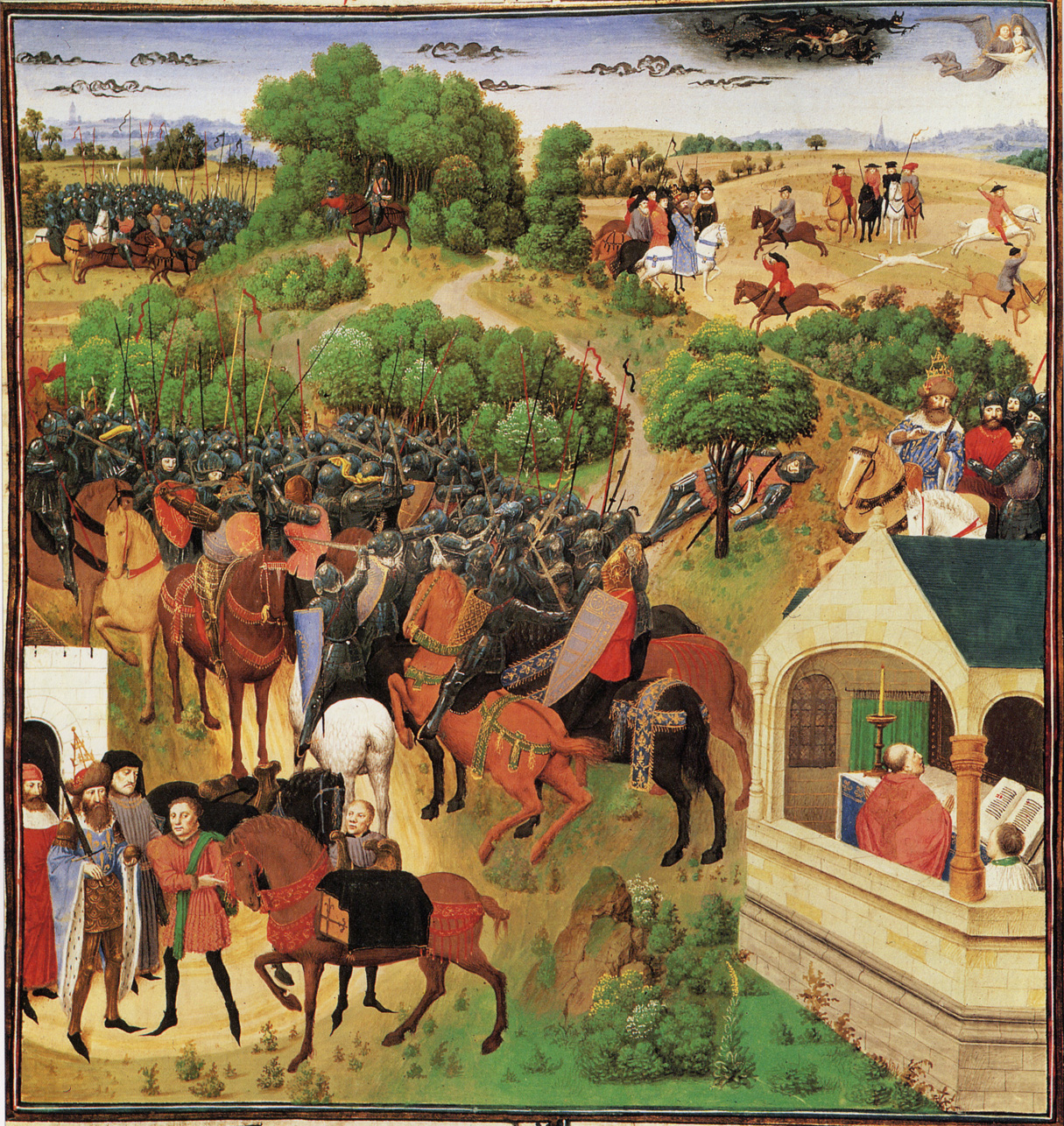“The Song of Roland” was the most popular epic poem written in Ancient Greece since The Iliad or The Odyssey. Composed after 1015, it was meant to persuade people to fight after Pope Urban II’s call to crusade. The earliest full copy still intact is from the mid-1100s and is in the Anglo-Norman language. Extremely popular when it was composed, the poem was still widely read up until the mid-1300s, with translations written in German, Dutch, and old Norse.

Although it was based on a true event, Charlemagne’s Invasion of Spain in 778, the famous work contains many mythical aspects. Charlemagne invaded to assist one Muslim king to oust a different Muslim ruler. During the raid he also attacked a Basque city, where the residents were depicted as Muslim but in reality were mostly pagan. The rearguard of Charlemagne’s army which was attacked by the Basques, was led by Roland. This period in Spanish history dwhen Christian forces attempted to get rid of all Muslim forces was known as the “reconquista” and lasted from 722-1492. The Muslim incursions were crushing and reached Southern France until they were crucially defeated by Charles Martel at the Battle of Tours in 732. Repeating that Charlemagne was over 200 years old during his reign, while truthfully he was only 35 is an example of a legendary aspect to this epic poem.
Charlemagne had defeated all the Muslims in Spain except Marsilie who had only 20,000 troops. Trying to deceive Charlemagne, Marsilie sent Blanacandrin as his emissary. Ganelon, Roland’s step-father, advised Charlemagne to take the offer of peace, while Roland said to reject it. After this, Ganelon and Blanacandrin swore to kill Roland. Somehow, Marsilie had accrued 400,000 troops, forcing the Frankish forces to depart to France. Suckered by Ganelon, Roland led the rearguard which was meant to protect against attacks during a retreat. Marsilie’s plan was to have 100,000 soldiers attack Roland in the first wave, then 300,000 more in wave two. Due to honor, Roland refused to blow the trumpet to signify that he needed help from Charlemagne, proclaiming that if he was to die, he wanted to be remembered as a hero, not a coward. Despite all this, Oliver, the second in command of the rearguard, begged him to blow the trumpet. Miraculously, the 100,000 Muslims of the first wave were defeated by only 20,000 led by Roland. In the second wave, 4,000 more Muslims were slain, but all of the senior knights of Roland’s army were then killed one-by-one.
These deaths are described in great detail in the poem. Down to only 60 men, they valiantly launched a desperate last-ditch assault on the remaining 100,000 Muslims, who fled in terror. Roland finally accepted Oliver’s pleas to blow the trumpet for assistance. Charlemagne heard this and mounted up to return. Nevertheless, Oliver was killed in battle and Ganelon’s betrayal was discovered.
